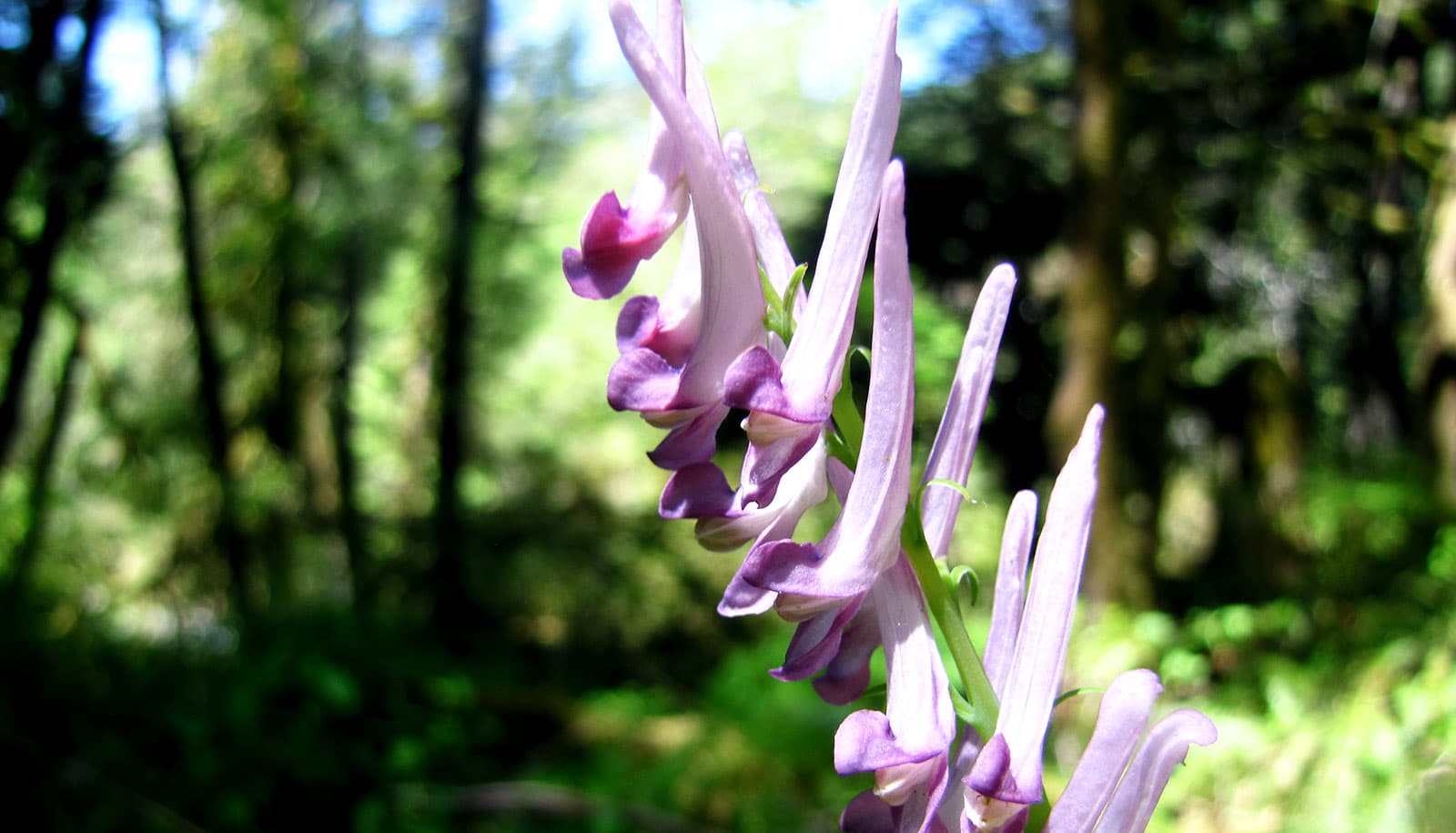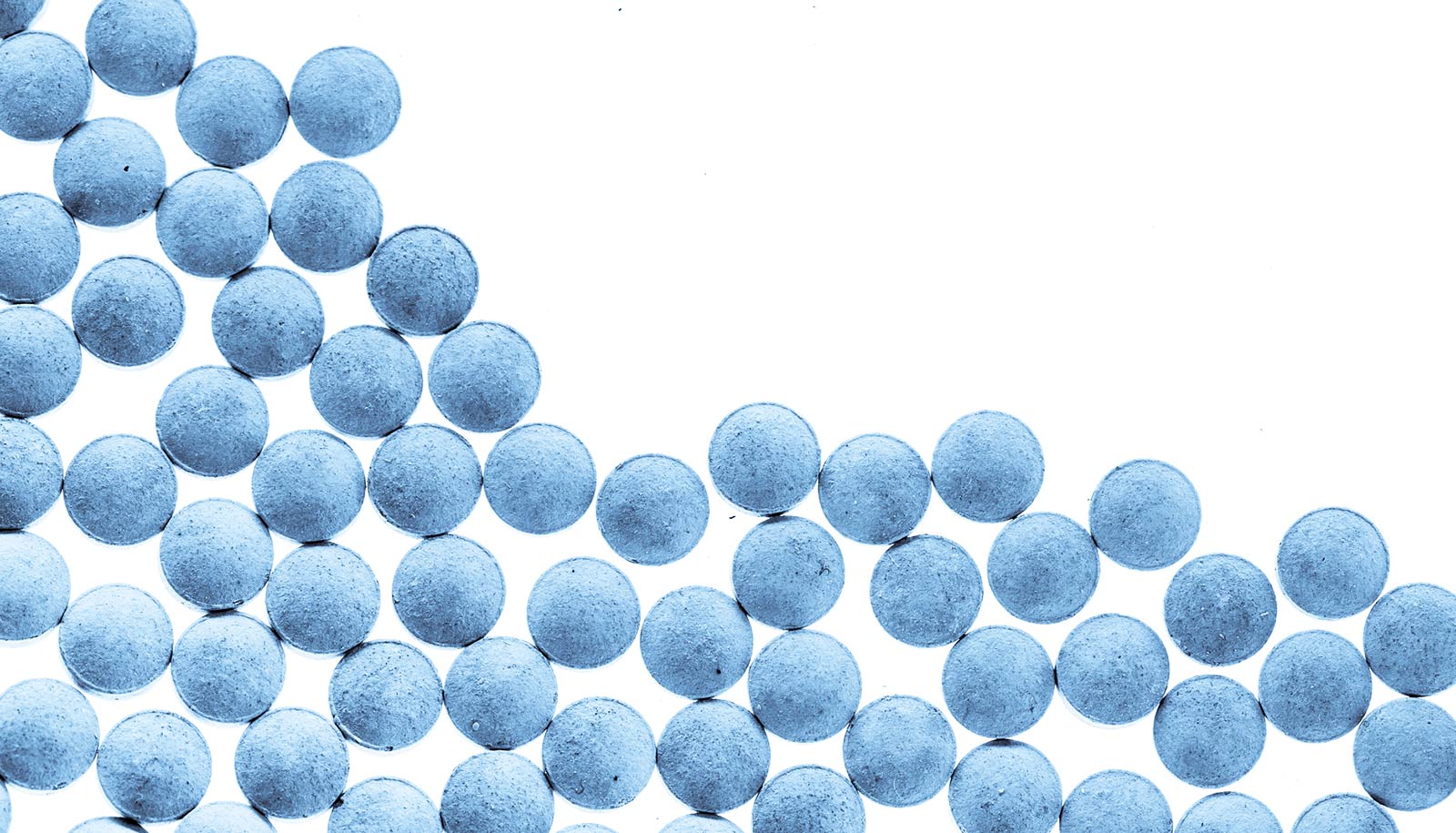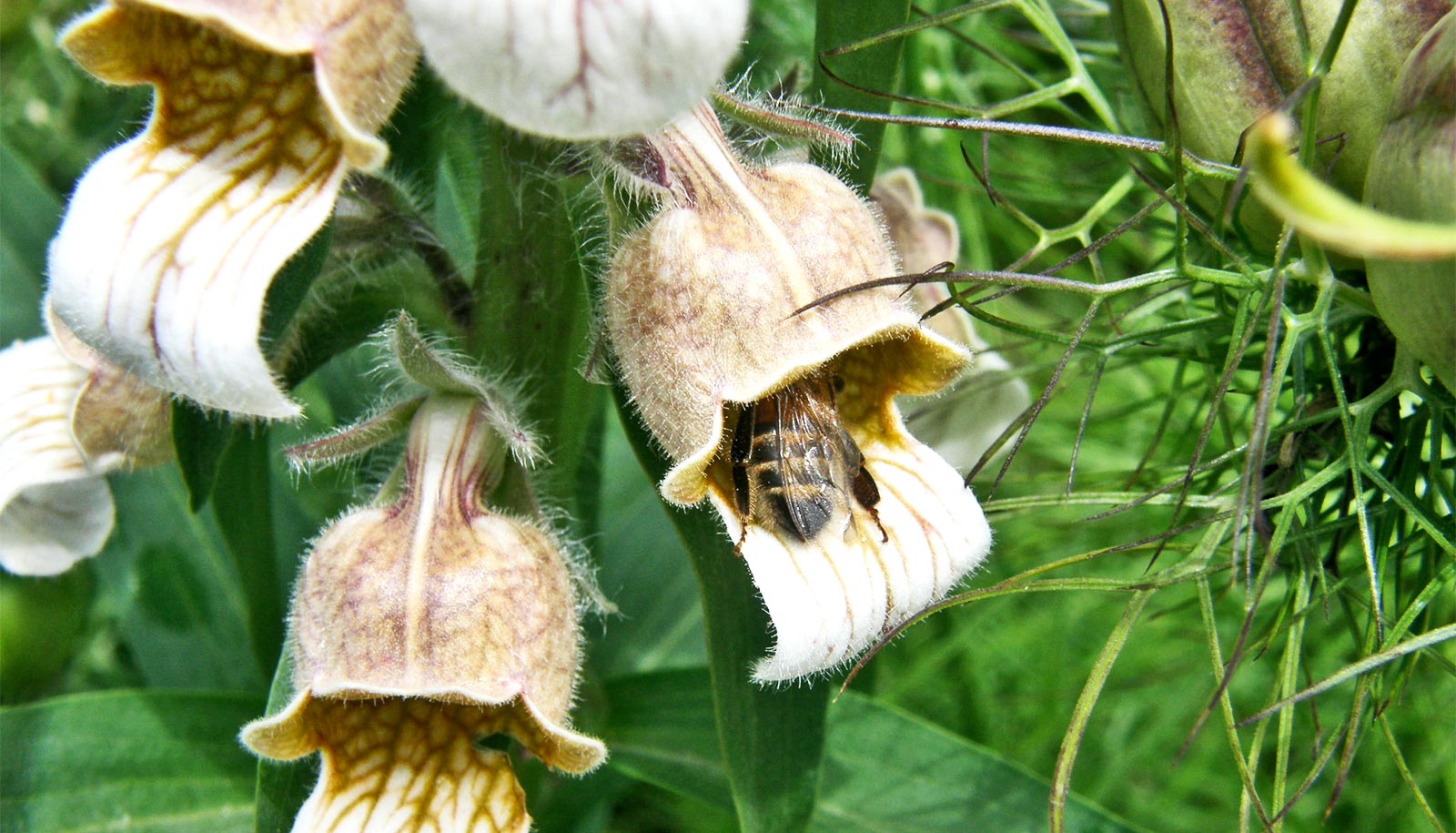The extract of the plant Corydalis yanhusuo prevents morphine tolerance and dependence while also reversing opiate addiction, research in animals indicates.
The findings appear in the journal Pharmaceuticals.
Over the past two decades, dramatic increases in opioid overdose mortality have occurred in the United States and other nations. During the COVID-19 pandemic, the situation has only worsened. The documented effects of YHS, the extract of the plant Corydalis yanhusuo, could have an immediate, positive impact, say researchers.
“It is critical that we decrease the use and abuse of opiates,” says Olivier Civelli, professor of pharmaceutical sciences at the University of California, Irvine’s School of Pharmacy & Pharmaceutical Sciences and corresponding author of the paper.
“To help achieve this goal, we are proposing the use of this therapeutic plant. When used in animals, the Corydalis extract prevents pain and the negative effects of opiate use. The next step would be to test it with humans.”
The findings show that YHS, when co-administered with morphine, inhibits morphine tolerance, dependence, and addiction. If YHS is used with morphine at the start or during pain management, there will be less need for morphine and so less risk of addiction.
“Opiate tolerance is of utmost importance to opiate users,” Civelli says. “They need to constantly increase the need of opiates to reach the same analgesic response. This is what leads to opiate overdose. YHS prevents opiate tolerance, so there is less need to increase opiate consumption.”
YHS has been used as analgesic in traditional Chinese medicine for centuries. It’s considered safe and readily available for purchase, either online or as a “botanical” in certain grocery stores.
Coauthors of the study are from UC Irvine and the Jordan University of Science and Technology.
Source: UC Irvine



